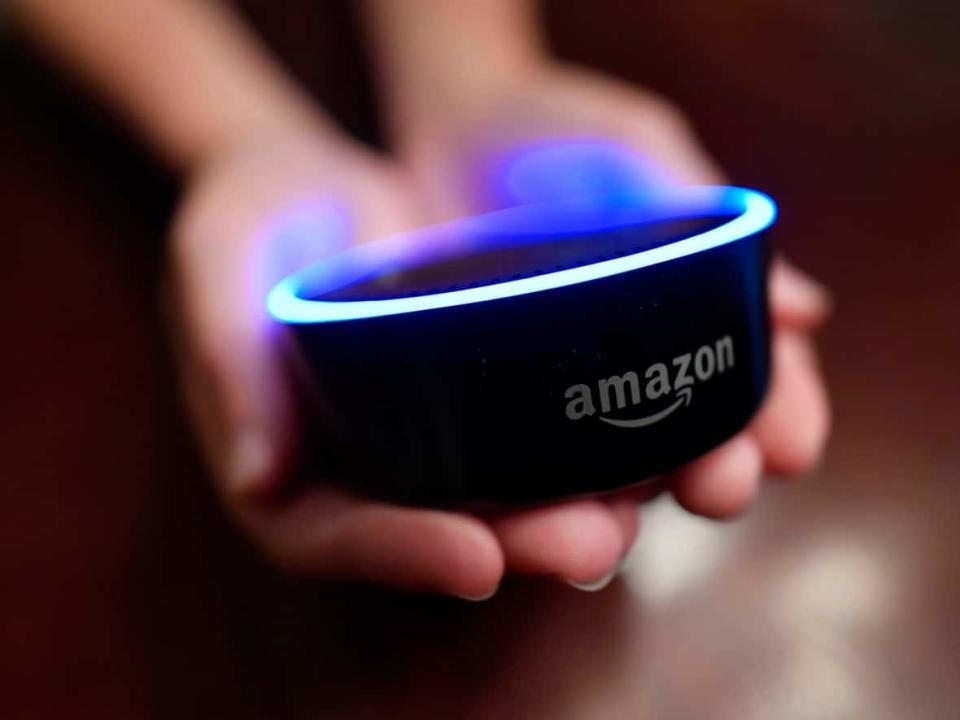Alexa, is the voice-assistant industry doomed?

A recent report indicating that Amazon's Alexa division is on track to lose $10 billion US this year is raising questions about the future of the entire voice-assistant industry.
"I think there is a next-generation battle for voice assistance that will require very, very deep pockets to survive," said Andy Wu, an assistant professor of business administration in the strategy unit at Harvard Business School.
Voice-assistant software driven by artificial intelligence responds to verbal commands via enabled devices; that can include asking them to play music, look up general information, set timers or place orders to a restaurant.
According to the market research company eMarketer, around 24.2 per cent of the total U.S. population will use Google Assistant this year, 23 per cent will use Apple's Siri, and 21 per cent will use Alexa.
But as Harry Guinness, writing for Popular Science, points out, what's notable is that Siri and Google Assistant come pre-installed on smartphones, while Alexa is primarily available on dedicated smart speakers.
"To get by in modern society, you kind of need a smartphone — but nobody needs a smart speaker," he wrote.
According to a 2021 report, smart-speaker ownership hit an all-time high last year, with almost 50 per cent of internet users in the U.S. owning at least one smart speaker.
Yet the Amazon division responsible for Alexa, the Echo devices on which Alexa runs, and Prime Video streaming, had an operating loss of more than $3 billion US in the first quarter of this year, according to a Business Insider report.
The majority of that loss was blamed on Alexa, the report said, adding that the same division is on track to lose over $10 billion US in 2022.
Meanwhile, Google Assistant and Apple's Siri are reportedly also struggling to fully monetize these services.

While the devices — at least in the case of Amazon's Alexa Echo — are reportedly sold at cost, the services on the devices aren't translating to profits. As Business Insider reported, Alexa may have been getting a billion interactions a week, but most of those conversations were trivial commands to play music or ask about the weather.
All of this has some analysts asking: Are all voice assistants doomed?
"We have to wonder: Is time running out for Big Tech voice assistants? Everyone seems to be struggling with them," wrote Ron Amadeo, reviews editor at the sci-tech website Ars Technica.
No clear monetization model
According to Wu, it's not surprising that these companies are taking such large losses on voice assistants.
"The investment in AI technology is tremendously expensive, and then the server space needed to process all this stuff is huge.… Even at the level of the device itself, they're definitely taking a loss on the bill of materials for a long time," he said.
"And so in the short term, there isn't a very clear monetization model."
These companies are sinking so much money in, Wu said, because they view voice-assistant technology as the next evolution in computer interface — much like the mouse or the touch screen.
"We've seen that they've already been willing to take significant losses. But what we don't know yet is whether or not the voice-assistant technology is what we would call a 'winner take most' market. Or is it going to be a more fragmented market?" he said.

Microsoft, with its Cortana voice-assistant technology, has already dropped out, said Wu, as have other companies.
That means the market may not be big enough to support more than one main player, he said. But between Google and Amazon, Wu said he sees Google continuing the fight.
"I think that there is a more core link between the AI technology and Google's general investments in AI. I think Google would want to push forward, regardless, to the extent that voice is the next generation of computer interface that will completely disrupt their traditional text-based search business."
What continues to be a major hurdle, experts say, is consumer knowledge; consumers aren't fully aware of the capabilities of their devices.
Alexa, for example, has thousands of connected apps — or what Amazon calls "skills" — that can be used to do things like order food, walk you through a recipe or, in a connected home, even turn on the washing machine.
"Most people don't know about the vast majority of these skills — and that is actually a problem with marketing or advertising in that there's not a convenient way for people to discover the apps," Wu said.
More marketing needed
Navid Bahmani, an assistant professor of marketing at Rowan University in Glassboro, N.J., agreed that the main challenge facing voice technology — and the companies backing it — is consumer adoption.
"They do need to do a lot more marketing of the device and its capabilities," he said. "[There's a] wide variety of different things consumers can't do because they just don't know about it."
Consumers often know about the very basic features that come right out of the box, he said, but they haven't been fully informed about all the different companies coming out with apps that expand the devices' capabilities.
"It's the equivalent of buying a smartphone and not knowing that there's an app store," he said.
Still, Bahmani is optimistic about the future of the industry.
"My opinion is that, no, the industry isn't going anywhere," he said. "If anything, it's very early in its stages. It's going to be growing."

 Yahoo Finance
Yahoo Finance 